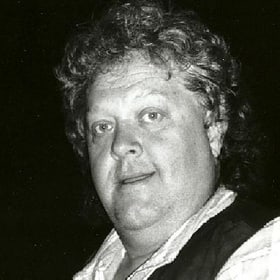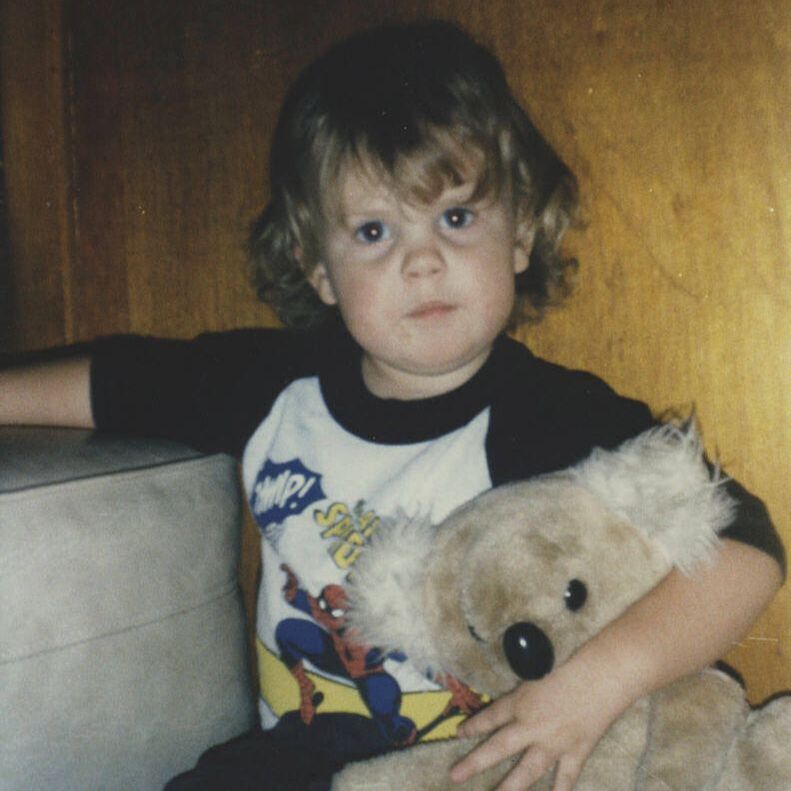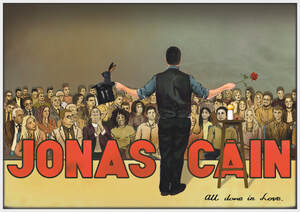|
When I was a little boy I idolized my eldest brother. Being fifteen years older than me, I rarely saw him, but I knew that he was the coolest guy around. I often only saw him at the annual Christmas Eve get together at my Grandmother’s house. He’d come in wearing his leather jacket, with guitar. His gift to me was always a CD of music that he thought I should listen to. And every now and again it would be a CD of a recording he had done with his band: Ed Vadas and the Fabulous Heavy Weights. For years he toured the east coast playing bass with that blues band, and I always looked forward to hearing his latest stories from the road. I remember one summer in particular they had a standing gig at a local country club and dad would the family to see them play. It was there that I first met Ed Vadas.
I was nervous meeting him, though. I had heard that he didn’t like sax players. And I’m a sax player. What I saw at his performances was a master at work. With guitar strung over his shoulder and harmonicas armed to his strap like ammo on a soldier, he ‘d put his hand on the guitar and blues would pour from it as easily as the sweat from his forehead in the summer heat. Everything he did was a performance. His rolling lyrics, his banter between songs; he even found a way to make a broken string mid-play a lesson in music making. I loved watching my brother play with Ed. He was already cool, but being in Ed’s band confirmed what I already knew. During one visit to the country club I summoned the nerve to talk to Ed. I asked him why he didn’t like sax players. Imagine that; I must have been no more than thirteen years old, talking with this living legend, asking what his beef was with people of my kind. In his own colorful way that only Ed could, he told me, which I will paraphrase: “Those sax players, they think they only have to play when they solo!” I took that advice to heart. With every band I have ever played with, a ska band, a wannabe blues/rock band, a folk rock group, a jazz trio, an experimental electronica ensemble, a jazz troupe, a Dave Matthews cover band, another Dave Matthews cover band, another jazz trio, a jam band, and an all original pop group, I have kept Ed Vadas’ words in mind. The thrill of my life came on brother’s surprise fortieth birthday. Ed was there with a bunch of other musicians to play the party. I happened to have my sax with me, and for the first time in my life I got to play with Ed Vadas. I was so nervous! I had to put a few drinks in in me first, but I played my heart out. When the night was done I was anxious to hear Ed’s response. His only words were: “You need a metal mouthpiece.” I took that as a positive sign that he approved of my playing (even when I wasn’t soloing). It was one of the best compliments I had ever received from anyone. I got word this week that Ed passed away on February 18, after a long battle with an illness. My heart sank. I hadn’t seen him in years. And to know that the world lost such a soul, I’m sad for those who never got to meet him. But his spirit touches everyone. He’s gone but not forgotten. Yes, the very words from one of his most iconic songs came to mind. Gone But Not Forgotten. I hadn’t listened to that album in years, but that’s all I’ve wanted to listen to all week. So much has happened to me since I last listened to this music. I’ve changed so much. And listening to it again on the other side of so much change allowed me to hear it from a new perspective. It was like watching a movie you hadn’t seen since childhood, and you catch things that you never saw before. Listening again, I can easily see how it has influenced my playing over the years. Though I spent much of my time playing other genres, my favorite to play has always the blues. You can hear it in my playing, as I favor the pentatonic scale for much of my work, even when it’s uncalled for. Adding that “blue not” is also a favorite of mine. I listened the whole album several times this week, but it was track four that I was mostly interested in. Gone But Not Forgotten. It was like he was singing his own eulogy. Structurally, the song departs from the standard 12 bar blues, with it’s catchy chorus and poignant verses, multiple back-up voices and handclaps, it at times feels like a gospel song. Track five also deserves repeating when it comes around. Waiting On Sunrise. His soulful lyrics contrast with the soft-spoken words in response, like hearing a man talk to himself or hearing his thoughts. “If my life’s a whiskey bottle, my heart be a broken glass….(I looked in the mirror today and saw why you left).” That’s how I spent my week. Hanging out with Ed Vadas. |
AuthorI'm a mirror (and so are you). Topics
All
Archives
February 2022
|



 RSS Feed
RSS Feed
